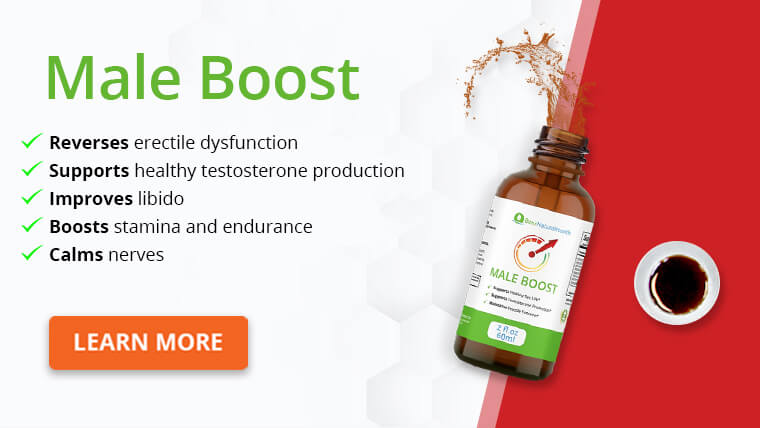Prostate surgery techniques have evolved in the last couple of decades.
Despite nerve-sparing procedures, erectile dysfunction still affects over 50% of patients who get radical prostatectomy.
Nerve tissues are fragile, and it’s easy to damage the penile nerves, regardless of how skilled the surgeon may be. It takes time to regain erectile function.
Here is a more detailed guideline on prostate surgery and how to speed up nerve regeneration after prostate surgery.
Prostate surgery and nerves
The nerves are entwined with a bundle of blood vessels. The surgeon will control the nerve bundle during prostate surgery to avoid major blood loss. To preserve them, the surgeon will also prevent the bleeding of these vessels. Cautery is a conventional method of sealing the vessels, providing adequate visualization of these bundles.
There are different prostate surgery types. These include:
- Radical prostatectomy – The surgery involves full or partial removal of the prostate. Doctors can use it to treat carcinoma confined to the prostate gland.
- Pelvic lymphadenectomy – The procedure takes out the lymph nodes from the pelvis. It is the most accurate option for tracking lymph node metastases in male patients with clinically localized prostate carcinoma.
- Transurethral resection of the prostate (TURP) – The treatment won’t cure the carcinoma. But, it can help get the urine flow back on track.
The prostate has many nerves that contain nitric oxide synthase. They are localized throughout the glandular epithelium (glandular tissue) and prostatic stroma. The prostate nerve endings can suffer damage and trauma during any of these procedures.
So, what nerves control erectile function? Radical prostatectomy can injure the cavernous nerves. The cavernous nerve regulates blood flow to the penis, which puts it in charge of controlling erectile function.
What nerve is cut in a nerve-sparing procedure?
During a nerve-sparing prostatectomy, surgeons steer clear of cutting nerves around the prostate.

ED after prostate surgery
ED after prostate surgery is a classic complaint among men. Erectile dysfunction after prostatectomy surgery can have a drastic impact on the quality of life in patients.
Studies indicate that around 60% of patients struggle with erectile dysfunction 18 months after the procedure. And less than 30% have firm erections to have sex after 5 years.
Why does prostatectomy cause erectile dysfunction?
Damaged nerves and erectile dysfunction go hand in hand. If one or both cavernous nerves are near the cancer, the doctor might remove them during a radical prostatectomy.
Even if they don’t take out the nerves, the patient could still suffer penis nerve damage. Trauma or injury to this particular penile nerve can trigger ED.
To understand how ED happens, it’s important to take a closer look at these erectile nerves and the stages of erection.
When sexually stimulated, the body releases neurotransmitters directly from the cavernous nerve terminals. The erection nerve dilates the arteries and arterioles, thus improving blood flow.
The different stages of getting erect involve:
- Stage 1. Latent phase (the organ fills with blood).
- Stage 2. Tumescence phase (the penis is partially erect).
- Stage 3. Erection phase (a fully erect penis).
- Stage 4. Rigidity phase (achieving a rigid erection).
- Stage 5. Detumescence phase (the penis returns to flaccidity).
The physical changes after prostatectomy can cause problems with getting or maintaining an erection. The side effects of treatment can also make it difficult to control the urine.
Recent reports show roughly 85% of men can have trouble with impotence after prostate surgery.
How to tell if you have nerve damage
Right after prostate cancer treatment, men often use an undergarment pad. In the next couple of months, the incontinence should subside.
All male patients treated for prostate carcinoma will experience ED post-treatment, even if this is only for a short time. In other words, it may take time to notice the symptoms of penile nerve damage. So, how to tell if you have penile nerve damage?
Classic penile nerve damage symptoms include:
- Lack of erection
- Loss of sensation or reduced sensation
- Coldness in the testes or penis
- Tingling or burning-like sensations
- Purple or blue skin
Discomfort in the testicles and perineal pain (pain in the area between the scrotum and the rectum) could last for a couple of months after the procedure.
Contact a specialist if you have long-term pain after prostatectomy recovery and the medicine can’t provide sufficient relief.
Do nerves grow back after surgery?
Typically, a severed nerve should regrow from the point of damage or injury. This, however, is a lengthy process and can take months. In some patients, the nerves don’t regrow. It depends on the extent of the damage.
Can penile nerve damage heal itself?
Many people want to know whether nerves regenerate after prostate surgery all by themselves. When the nerve suffers damage, it is normal for it to try and repair itself. The axons (nerve fibers) shrink back and start resting for roughly a month. Then, they start growing again. Axons can heal around 1 mm a day.

Why do nerves need to regenerate if they were not removed?
Regenerating prostate nerves is a key component of functional recovery. Nerve repair is a complex biological process. Although the prostate nerve can naturally regenerate and regrow, it might not do so properly when there is significant damage.
Therefore, a tangled mass of scar tissue can hinder normal nerve function and could trigger chronic pain. The process of regenerating nerves after surgery can be very painful. During the natural penile nerve damage repair, patients often experience unpleasant sensations.
How to help nerves recover faster after prostatectomy
So, how can you speed up nerve regeneration after prostate surgery? Many patients wonder how to overcome ED after prostate surgery. To get the health of the penis back on track, doctors can suggest penile rehabilitation. This is a comprehensive treatment for ED after prostatectomy.
Penile rehabilitation starts with pharmacologic agents, interventions, or devices stimulating normal sexual function. Men should begin treatment in the weeks following the procedure.
The goal is to try and restore spontaneous erectile functions so that men can get erections without the help of erectile aids.
For the best penile nerve damage treatment, doctors often recommend oral agents. PDE-5 inhibitors can promote better circulation to the penis. They relax the muscles and can help treat ED.
Does Viagra work after prostate surgery?
The better the circulation to the penis, the bigger the odds of regaining erections. Viagra is a PDE-5 inhibitor and a potent pharmacological agent for restoring blood flow to the penis after surgery.
Will Viagra work if you have nerve damage?
Men with injured nerves or neuropathy might notice that Viagra (sildenafil) doesn’t work. Viagra after prostate removal can help, but in the case of prostate surgery nerve damage, the medication may not be that effective.
How soon after prostatectomy can I take Viagra?
Some men could start taking medication 6 months after the procedure. But talk to your doctor first.

Injection therapy
Patients can also make use of injection therapy. It is meant to amplify blood flow to the penis and trigger an erection.
When there are nerve problems, doctors often suggest a vacuum erection device. The vacuum pump is a non-invasive treatment alternative for ED that patients place over the penis for an effective blood flow boost.
Penile rehab exercises
Those who struggle with premature ejaculation can try rehabilitation exercises. Strengthening the pelvic floor muscles and core area can offer adequate support to the genital muscles. Thus, allowing patients to get and keep an erection.
Other options may include:
Linear compression therapy
This is a novel treatment modality for ED. Randomized clinical trials show that it could drastically amplify erectile function.
Vibration therapy for ED
Vibratory stimulation can be a practical option for increasing sexual function and libido. Plenty of studies support this type of therapy for treating ED. Including ejaculatory dysfunction and anorgasmia (infrequent, absent, or delayed orgasms).
Penile traction therapy (PTT) device
This is one of the new treatments for ED after prostatectomy. Patients are wearing a penile traction device for a set period daily. The therapy can stretch the penis, correct deformities, and restore length.
To manage ED after surgery, talk to a urologist. They can help you pinpoint the exact type of treatment that can curb the nerve pain during prostate surgery recovery and ease the dysfunction.
Sign Up For Our Newsletter!
- Receive 10% off our best-selling supplements
- Get Your FREE PSA Lowering Diet Plan
- Be the first to hear about sales and promotions
- Stay up to date on our latest health news
How long does it take for nerves to regenerate after surgery?
The penis is a sensitive organ, and different patients can experience various levels of nerve injury and sexual health complications.
In younger patients, the healing process can be faster, but for the majority of patients, recovery is gradual and can take 3 years. This is why penile nerve healing time can vary from person to person.
Some nerves usually heal roughly 1 inch a month. The erectile tissue might need 18 months to regenerate. While prostate regrowth after TURP can take years.
Conclusion
No miracle pill can help the penile nerves heal faster after prostate surgery. You need to take your time healing and make regular follow-up appointments with your doctor.
If there is some penile nerve damage, the erectile tissue may heal in 18 months. To restore normal erectile function and speed up nerve regeneration after prostate surgery, your doctor can suggest the best form of treatment.
Explore More








